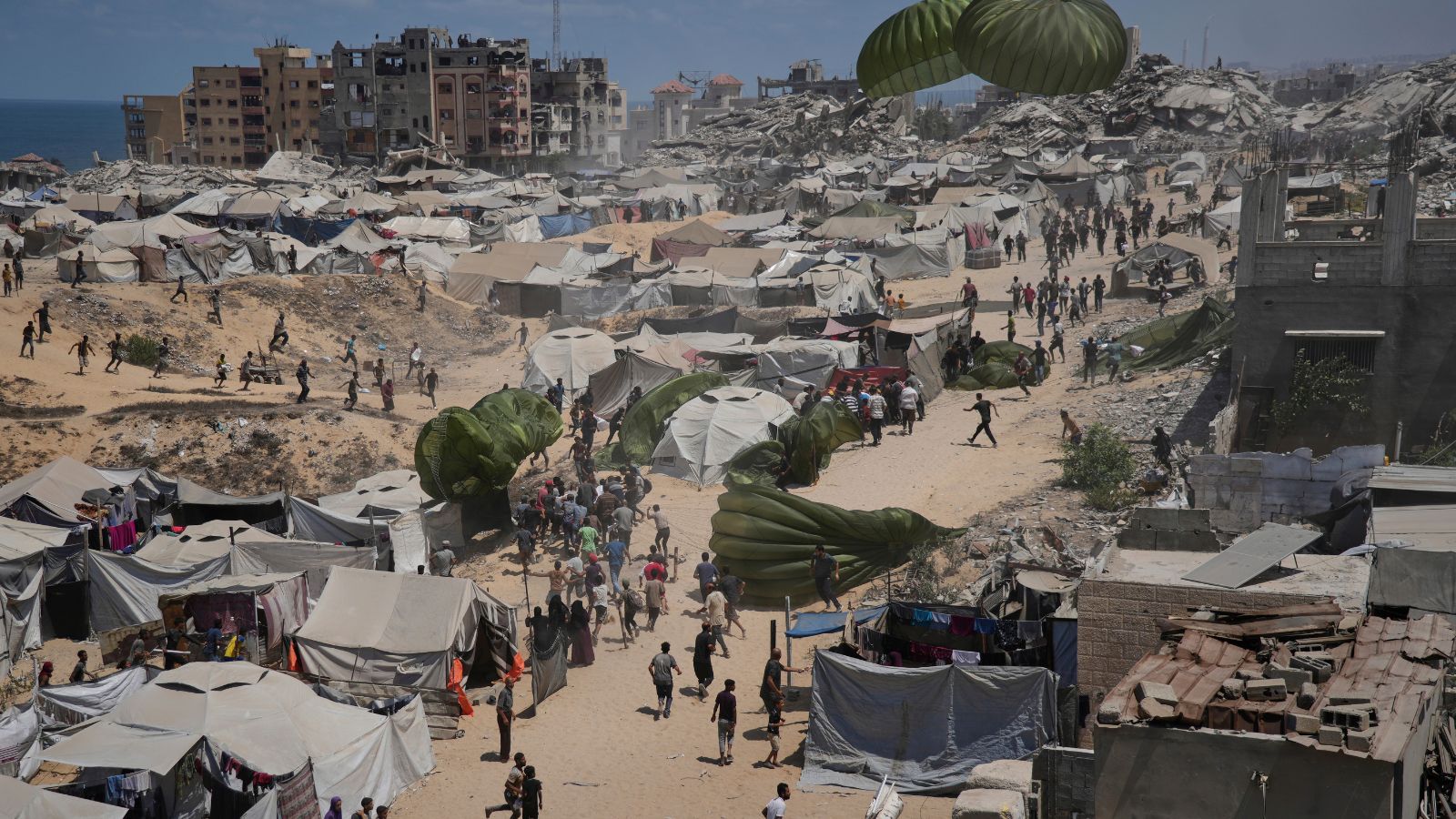
Aug 9, 2025 08:05 IST
First published on: Aug 9, 2025 at 07:25 IST
Share
One month has passed since Israeli and American aggression against Iran halted. Over the past month, more evidence and insights have come to light regarding the 12-day imposed war. As new revelations continue to emerge, it has become increasingly clear that despite the initial media spin by the US and Israel, their attacks cannot be viewed as a success by any standard or measure. What was originally framed as a decisive military engagement is now being reassessed with respect to new data and perspectives, showing the limitations and setbacks that Israel and the US suffered during the conflict.
The scale of damage caused by Iran’s ballistic and hypersonic missiles to Israel’s critical infrastructure has been so extensive, that even a month after the fighting has ceased, many critical Israeli infrastructure sites remain inoperable. Damaged Israeli ports, power plants, refineries, and airports remain unusable, undermining Israel’s ability to recover swiftly from the attack. While Israel undeniably inflicted serious blows to parts of Iran’s missile and nuclear supply chains, Iran has managed to stay resilient and ahead of the curve in many respects. Notably, none of Iran’s vital infrastructure has been completely neutralised, allowing Iran to maintain both its strategic defence capabilities and its economic stability. In fact, the estimated cost of each Israeli offensive and defensive operation alone has outstripped the total damage inflicted on Iranian facilities.
On the other hand, new evidence shows that despite prior US knowledge of Iran’s targeting of the Al-Udeid base, American air defences failed to prevent Iran’s precision-guided missiles from striking the most critical US radar facility in the West Asian region. This failure highlights a significant gap in the US military’s ability to defend against highly advanced and sophisticated Iranian missile technologies. Iran’s success in this regard represents a major setback for US interests in the region.
The Iranian people, who had previously questioned the benefits of nuclear energy due to the economic pressure from illegal US sanctions, are now more united and determined than ever in their stance. The aggression has only strengthened their resolve to assert Iran’s legitimate right to pursue nuclear energy.
If the setbacks for Israel and the US had ended solely on the battlefield, they might still have been manageable in a political sense. However, what has proven to be even more damaging than the military defeat is the loss in the narrative war. For 45 years, the US and Israel invested billions in constructing a narrative that painted Iran as brutal, oppressive, and fanatical. This narrative has now been challenged and weakened. Today, the world sees a different image: Iran as the leading supporter of the Palestinian cause, standing in defiance of the supremacist and racist policies of the US, Israel, and a handful of their European allies. By positioning itself as a vocal advocate for Palestinian rights, Iran has gained widespread global sympathy.
Moreover, the blow of this military and ideological defeat was further compounded when the US and Israel – hoping their attack on Iran would trigger domestic unrest and facilitate a regime change – were instead met with a unified and nationally cohesive Iranian response. Rather than seeing divisions or internal unrest, the Iranian people have rallied around their government, reinforcing the leadership’s position and undermining any efforts for regime change. They condemn the Israeli and American attacks against their sovereignty, and they are increasingly unified in their readiness to resist any future aggression.
Meanwhile, global public indignation over the actions of the Israeli regime – widely seen as committing atrocities against children and engaging in genocide – has grown so intense that even Israel’s traditional allies have started to distance themselves. Many states, fearing backlash both at home and internationally, have become cautious about being publicly associated with Israel. This shift reflects the growing disillusionment with Israeli policies.
Altogether, these developments have left both Donald Trump and Benjamin Netanyahu in a worse position than they were in when they first launched the attack on Iran. Despite their best efforts to spin the narrative, they are now scrambling to claim that their operations were a success, asserting that they intercepted nearly all of Iran’s projectiles and minimised both casualties and damage. But the truth cannot be concealed indefinitely.
Given the increasingly difficult political situation they now face, both Trump and Netanyahu have a vested interest in convincing their domestic audiences that they achieved their objectives. However, deep down, both men are aware that the recent failure has only propelled Iran closer to cementing its position as a regional power. Iran has not only withstood the military assault but also proved its resilience and ability to respond to external threats. Once again, it has reaffirmed its role as one of the main pillars of regional peace and stability, countering the expansionism and criminal activities of the Zionist regime as well as the interventionist policies of extra-regional powers like the US.
What was intended as a calculated move to cripple Iran has instead strengthened it, both in the eyes of its people and on the world stage.
The writer is the ambassador of the Islamic Republic of Iran to India

